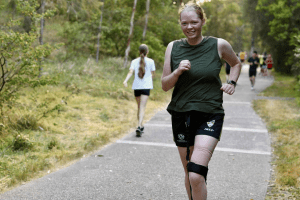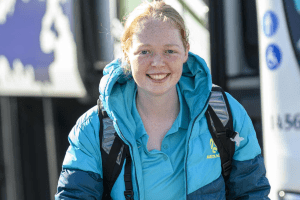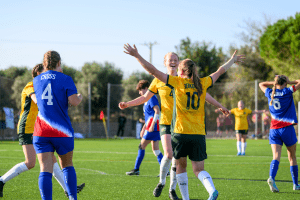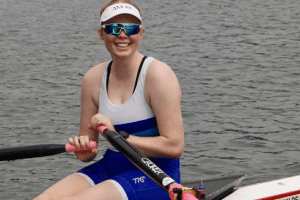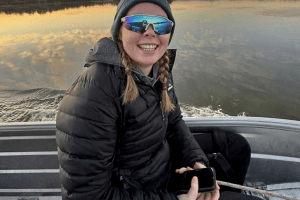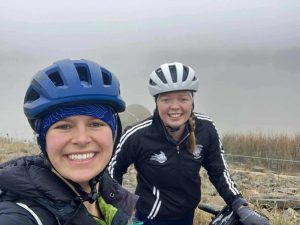Bec's journey
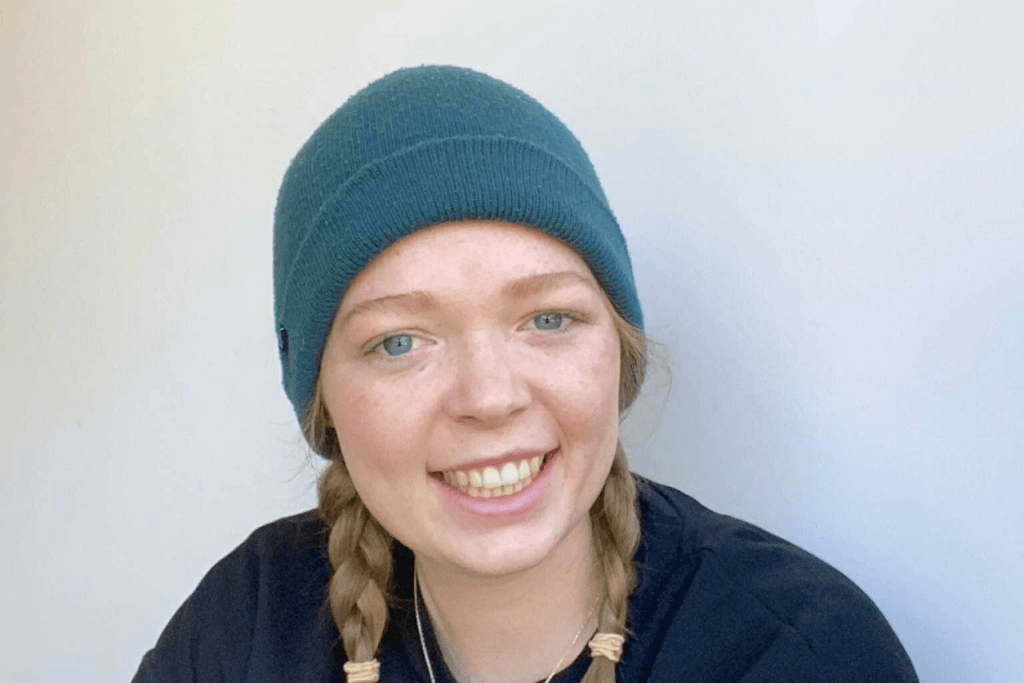
When Bec hit the slopes in 2018 as a teenager, she had no idea that one ski run would change her entire life. “My ski got caught in a root that I couldn’t see under the snow. I got flung backwards down the hill and got a solid knock on the back of my head.”
At first, she didn’t think it was serious. “At that time, I didn’t know that you didn’t have to be knocked unconscious to have a concussion. So, I just got up and kept skiing.”
A week later, it was her physio who urged her to see a doctor. “The doctor encouraged me to, ‘take some time off school.’ But I had year 11 exams, so I didn’t take time off, and I regretted that for a long time. I’m sure rest would have been helpful.”
For the next 18 months, Bec pushed through daily migraines, trying to keep up with school. “My grades started dropping dramatically and my whole life was impacted, everything from my mood, focus, just happiness overall because everything’s harder when you’re not feeling well”. Eventually, she was diagnosed with post-concussion syndrome. After 18 months though, her symptoms started lifting. “One migraine free day, became two and eventually by the time I moved away for university I was having more symptom free days than symptomatic ones. It was such a relief, and a reprieve I did not take for granted.”
The long road to a diagnosis
It was only a couple months later, however, that Bec’s health completely unravelled in 2020. A suspected virus, possibly Ross River Fever unleashed something far worse. “Initially it was manageable, typical viral symptoms, fever, night sweats, vomiting, headaches and then fatigue that persisted. My speech was also affected. I’d try to say, ‘birthday cake,’ and it would come out ‘bathroom cake.’ and ‘duck’ would come out as ‘dog’, I couldn’t say what I was thinking but initially I laughed it off.”
A few months later she had her wisdom teeth removed. “It was then that it felt like something changed in my brain and very quickly everything escalated.” Her body and brain shut down. “I didn’t recognise myself in the mirror. I started having seizures, I was not sleeping or eating. I was losing my balance, experiencing periods of psychosis, my autonomic nervous system was affected too. I lost every aspect of my life. I had to drop out of uni and was hospitalised for most of the next year.”
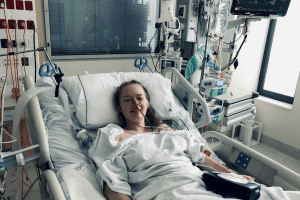
Photo from stay in ICU in 2020. I have had 4 stays in ICU and 2 induced comas since getting encephalitis.
It took a full year to finally learn what was wrong: autoimmune encephalitis, her immune system was attacking her brain. “It was really nice to have a diagnosis. But, what was incredible was the fact that the treatment started working.” After steroids, plasmapheresis and finally IVIg infusions, everything changed. “I got my first infusion of IVIg, a blood product that comes from plasma donations, made up of ‘good antibodies’ and it helped distract my immune system from attacking my brain I will forever be grateful plasma donors because it was ultimately them that saved my life.”
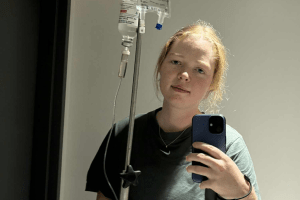
Photo getting an IVIg infusion. I have gotten an infusion monthly for the last 4 years (which has meant thousands of plasma donors have kept me alive/with good quality of life).
The impact was immediate. “Basically, after that, all my symptoms just lifted. I had not known who I was for a year, and then I could suddenly look in the mirror and know that it was me again. My sanity returned. I could read a book again. I was happy for the first time.”
While recently reading over her old medical notes, a quote from her dad jumped out: “She might not be walking but it’s the first time I have seen her free in a year.”
Bec still remembers the simple joy of leaving her hospital room. “I got in a wheelchair and went out the front of the hospital and just feeling the sun on my face was just…I just felt so happy, and the relief was indescribable. I feel spoiled by the experience.”
The cost of being a young woman not heard
Bec’s battle as a young woman in the healthcare system was just beginning, unfortunately a new chapter of health issues was about to begin. After a complication with her central line caused multiple strokes her desperate pleas were dismissed. “You know, throughout my whole experience with encephalitis, the presence of stigma in the healthcare system was rife and horrific and very complex. But, with the stroke it just showed an incredibly clear representation of what it can be like to be a young woman.”
She’ll never forget the terror of that moment. “I had the most horrific pain in my head that I could possibly imagine. I was in so much pain, I was vomiting, I couldn’t move my left side. I had the worst chest pains, and I couldn’t get my breath at all. I got told I was having a panic attack.” It took four days before the neurologist agreed to perform an MRI. “It was the Nurse Unit Manager and my immunologist that pushed for it and I’m very grateful they did because it showed I’d actually had a number of strokes. They then also tested my blood troponin levels, which is a measure of heart muscle damage, which was significantly elevated. So, it was actually a mixture of a stroke and heart attack that caused my ‘panic attack’ symptoms. So not the optimal experience, but at that point I’d had worse. I had my brain back, so I knew I would be able to deal with that.”
